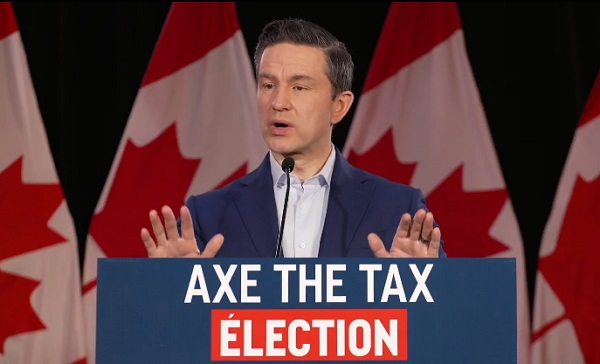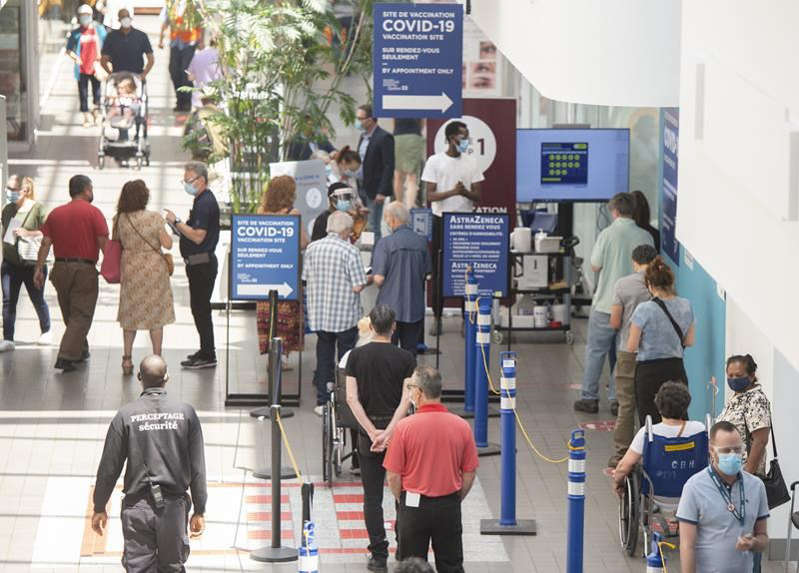Alberta
Local moving company donating 101 moves to support vulnerable Canadians this holiday season

Submitted by Two Small Men with Big Hearts Moving
Two Small Men with Big Hearts Moving is moving joy, one community organization at a time
This holiday season, Two Small Men with Big Hearts Moving (“Two Small Men”) is spreading joy, seeking to donate 101 moves to community organizations that support at-risk individuals. With inflation at an all-time high and the higher stresses that come with the holiday season and colder weather, Two Small Men is looking to give back to the local markets they operate in during this time of need. This marks the third year for this initiative, which Two Small Men was inspired to launch in 2020, following the hardships of COVID-19. The campaign has grown year-over-year, from 25 donated moves in 2020, to 80 moves in 2021, and now with a goal of 101 moves for 2022.
Two Small Men has a long history in Red Deer having supported the Red Deer Food Bank, Bridges Community Living, and the Alberta Motor Association in past years. They are also always actively searching for new community organizations to partner with to support with donated moving services.
This holiday season, Two Small Men will be helping organizations that support vulnerable communities with everything from moving mass amounts of food to local food banks, to supporting shelters with moving individuals into new homes, to moving toys for underprivileged children.
Two Small Men’s community-first mindset is a key part of its identity. Written right into the name, it is a moving company with a big heart, that cares deeply about giving back. Two Small Men has developed a robust community giving program that supports a variety of non-profit and charitable organizations with in-kind moving services, donation collection initiatives, and other financial contributions. Each year, the business redirects 10 per cent of its annual profits to community giving and other charitable operations. In 2022, Two Small Men projects this will translate into a donation fund of $200,000, with the goal of growing to give $750,000 annually in the next 10 years.
“Moving people’s possessions is our business, but the heart of what we do is really all about supporting the people who make up our communities,” says Addison Parfeniuk, CEO, Two Small Men Big Hearts Moving. “We know that the winter season can be an especially challenging time for many people, and it is our hope that by partnering with local organizations such as the Red Deer Food Bank, we will be able to fill the real needs of real people in the Red Deer community.”
Charitable and non-profit organizations are encouraged to submit their moving needs for consideration in this year’s Season of Giving campaign.
For more information, please visit https://twosmallmen.com/about-us/giving-back/.
About Two Small Men
Two Small Men with Big Hearts Moving is a Canadian moving company focused on supporting customers through every stage of their move, big or small. Founded in 1982, the company has 25 offices across the country with major operations in Calgary, Edmonton, Vancouver, Kelowna, and Winnipeg, and a fleet of more than 100 moving trucks. Committed to giving back to their communities, they donate 10 per cent of their profits each year to relevant charities and organizations that are serving the community.
Alberta
Federal taxes increasing for Albertans in 2025: Report

From the Canadian Taxpayers Federation
By Kris Sims
The Canadian Taxpayers Federation released its annual New Year’s Tax Changes report today to highlight major tax changes in 2025.
The key provincial tax change expected for Alberta is a reduction in the income tax rate.
“The Alberta government promised to reduce our lowest income tax bracket from 10 down to eight per cent and we expect the government to keep that promise in the new year,” said Kris Sims, CTF Alberta Director. “The United Conservatives said this provincial income tax cut would save families about $1,500 each and Alberta families need that kind of tax relief right now.
“Premier Danielle Smith promised to cut taxes and Albertans expect her to deliver.”
Albertans will see several federal tax hikes coming from Ottawa in 2025.
Payroll taxes: The federal government is raising the mandatory Canada Pension Plan and Employment Insurance contributions in 2025. These payroll tax increases will cost a worker up to an additional $403 next year.
Federal payroll taxes (CPP and EI tax) will cost a worker making $81,200 or more $5,507 in 2025. Their employer will also be forced to pay $5,938.
Carbon tax: The federal carbon tax is increasing to about 21 cents per litre of gasoline, 25 cents per litre of diesel and 18 cents per cubic metre of natural gas on April 1. The carbon tax will cost the average household between $133 and $477 in 2025-26, even after the rebates, according to the Parliamentary Budget Officer.
Alcohol taxes: Federal alcohol taxes will increase by two per cent on April 1. This alcohol tax hike will cost taxpayers $40.9 million in 2025-26, according to Beer Canada.
Following Budget 2024, the federal government also increased capital gains taxes and imposed a digital services tax and an online streaming tax.
Temporary Sales Tax Holiday: The federal government announced a two month sales tax holiday on certain items like pre-made groceries, children’s clothing, drinks and snacks. The holiday will last until Feb. 15, 2025, and could save taxpayers $2.7 billion.
“In 2025, the Trudeau government will yet again take more money out of Canadians’ pockets with payroll tax hikes and will make life more expensive by raising carbon taxes and alcohol taxes,” said Franco Terrazzano, CTF Federal Director. “Prime Minister Justin Trudeau should drop his plans to take more money out of Canadians’ pockets and deliver serious tax relief.”
You can find the CTF’s New Year’s Tax Changes report HERE.
Alberta
Fraser Institute: Time to fix health care in Alberta

From the Fraser Institute
By Bacchus Barua and Tegan Hill
Shortly after Danielle Smith was sworn in as premier, she warned Albertans that it would “be a bit bumpy for the next 90 days” on the road to health-care reform. Now, more than two years into her premiership, the province’s health-care system remains in shambles.
According to a new report, this year patients in Alberta faced a median wait of 38.4 weeks between seeing a general practitioner and receiving medically necessary treatment. That’s more than eight weeks longer than the Canadian average (30.0 weeks) and more than triple the 10.5 weeks Albertans waited in 1993 when the Fraser Institute first published nationwide estimates.
In fact, since Premier Smith took office in 2022, wait times have actually increased 15.3 per cent.
To be fair, Premier Smith has made good on her commitment to expand collaboration with the private sector for the delivery of some public surgeries, and focused spending in critical areas such as emergency services and increased staffing. She also divided Alberta Health Services, arguing it currently operates as a monopoly and monopolies don’t face the consequences when delivering poor service.
While the impact of these reforms remain largely unknown, one thing is clear: the province requires immediate and bold health-care reforms based on proven lessons from other countries (e.g. Australia and the Netherlands) and other provinces (e.g. Saskatchewan and Quebec).
These reforms include a rapid expansion of contracts with private clinics to deliver more publicly funded services. The premier should also consider a central referral system to connect patients to physicians with the shortest wait time in their area in public or private clinics (while patients retain the right to wait longer for the physician of their choice). This could be integrated into the province’s Connect Care system for electronic patient records.
Saskatchewan did just this in the early 2010s and moved from the longest wait times in Canada to the second shortest in just four years. (Since then, wait times have crept back up with little to no expansion in the contracts with private clinics, which was so successful in the past. This highlights a key lesson for Alberta—these reforms are only a first step.)
Premier Smith should also change the way hospitals are paid to encourage more care and a more patient-focused approach. Why?
Because Alberta still generally follows an outdated approach to hospital funding where hospitals receive a pre-set budget annually. As a result, patients are seen as “costs” that eat into the hospital budget, and hospitals are not financially incentivized to treat more patients or provide more rapid access to care (in fact, doing so drains the budget more rapidly). By contrast, more successful universal health-care countries around the world pay hospitals for the services they provide. In other words, by making treatment the source of hospital revenue, hospitals provide more care more rapidly to patients and improve the quality of services overall. Quebec is already moving in this direction, with other provinces also experimenting.
The promise of a “new day” for health care in Alberta is increasingly looking like a pipe dream, but there’s still time to meaningfully improve health care for Albertans. To finally provide relief for patients and their families, Premier Smith should increase private-sector collaboration, create a central referral system, and change the way hospitals are funded.
-

 Housing2 days ago
Housing2 days agoTrudeau loses another cabinet member as Housing Minister Sean Fraser resigns
-

 conflict2 days ago
conflict2 days agoTrump has started negotiations to end the war in Ukraine
-

 Business2 days ago
Business2 days agoFiscal update reveals extent of federal government mismanagement
-

 Economy2 days ago
Economy2 days agoThe White Pill: Big Government Can Be Defeated (Just Ask the Soviet Union)
-

 Brownstone Institute1 day ago
Brownstone Institute1 day agoA Potpourri of the World’s Unexposed Scandals
-

 National2 days ago
National2 days agoAs Trudeau’s government teeters, Pierre Poilievre pushes for immediate election call
-

 conflict2 days ago
conflict2 days agoTrump’s election victory shows the American people want peace in Ukraine
-

 COVID-191 day ago
COVID-191 day agoEsteemed UK Doctor pleads with governments to cancel COVID-19 vaccines








